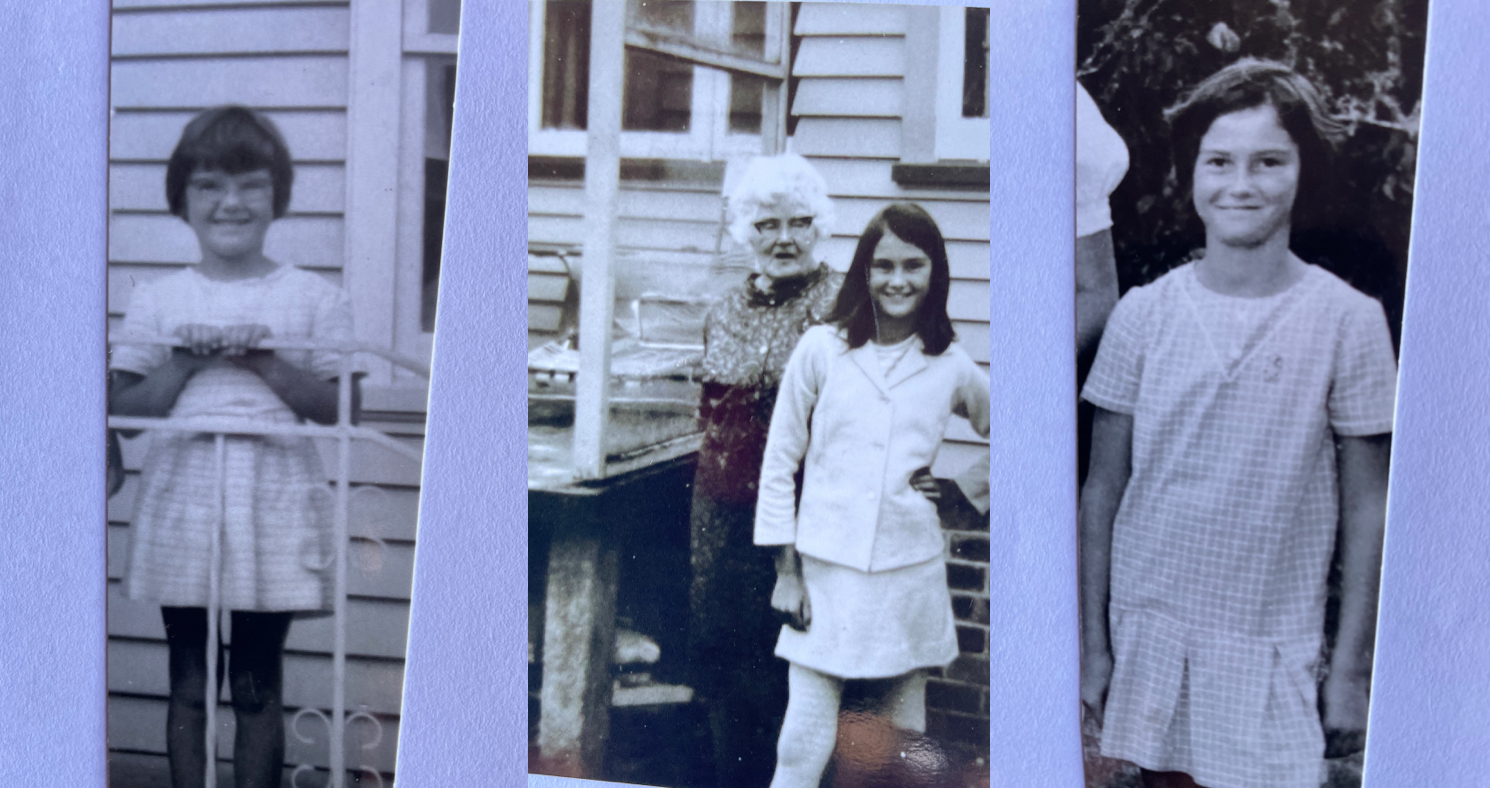
By Melanie Gibson
Something happens to teenage girls that replaces their magic with a curse. Their personal interests fade away while they chase approval from others. Whatever love they have for themselves veers into seething self-hatred or at least mild disdain. I lost my magic when I was cursed with an eating disorder.
I don’t remember why I began hating my body at age thirteen. Some switch was flipped during a routine summer visit to my maternal grandparents in Bethlehem, Pennsylvania, before I started high school. Suddenly my stomach was unforgivably fat, and I had to reign my changing body back under control. I spent the rest of the summer eating a piece of fruit for lunch and taking power walks around the neighborhood each afternoon. No one noticed.
My eating disorder has grown and changed with me over time, although the body hatred, particularly for my stomach, has remained the same. Restriction gave way to bingeing and over-exercising as an older teen and college student. Going into my thirties I stopped bingeing but monitored my weight closely and restricted when it went over my magic number.
In my late thirties a brief foray into vegetarianism and later an intestinal parasite that caused me to rapidly lose weight triggered me to starve myself to the lowest I’ve ever been. In mid-2020 I was felled by a serious knee injury that required reconstructive surgery and months of intense rehab. Coupled with surgery recovery, my grueling workplace demands reawakened my mental illnesses. Once again, I found comfort in restriction, limiting my lunches and dinners to a few particular foods.
Quite serendipitously, I fell into treatment. During an intake call for a therapy center I’d found to help me deal with my raging anxiety, mood swings, and depression, I admitted that I restricted food and was fixated on my weight, but I mean, who doesn’t? The psychologist doing my official introductory interview brought along a nutritionist, and together they diagnosed me with atypical anorexia. I wasn’t underweight or experiencing other dangerous physical symptoms, but the mental patterns and behaviors of anorexia were raging fiercely. I was shocked, amused, and ultimately, relieved.
It’s strange telling people you have an eating disorder when you don’t look like you have an eating disorder. My best friend was so stunned it took him a moment to pick up his jaw after I told him. My dad, trying to help me avoid the $150-a-pop fee for nutrition therapy sessions, said, “You’re smart. Can’t you read books on what to eat?” In a misguided but well-intentioned gesture, he commented that I was “very thin” (I’m not) as if I’d reached my goal and could just act normal again.
I’ve been in denial too. I didn’t think my behavior was damaging. I thought it was necessary. Okay, maybe I engaged in disordered eating, but I didn’t have an eating disorder. Eating disorders are for teenagers with nose rings and chipped black nail polish. This is a silent, lonely place to be.
The body positivity movement doesn’t seem to have a place for me either. I have never thought of myself as “skinny.” Skinny girls have flat chests and slim hips and, the way I imagine them anyway, are tall with long grasshopper-y legs. More importantly, they have flat stomachs. I do not. Nor do I “live in a larger body,” as the delicate phrasing goes today. I do not have the battle-won markers of pregnancy stretch marks or C-section scars to “justify” a loose, sagging stomach. The wine-sipping mama bears of Instagram would have no sympathy for me and my little belly pooch if I dared to post a bikini picture.
I’m average, even below average. I’m not outstanding. I’m not anything besides myself and the physical and mental cards I’ve been dealt.
I have this weird, compartmentalized battle between body positivity and body dysmorphia. The ACL reconstruction surgery I had in 2020 used a graft from my quadriceps tendon, so my right thigh was completely collapsed. It was practically concave, and it has taken months to re-build back to where it was before. The physician assistant who removed the sutures from my surgical incisions remarked, “That scar will fade over time. It’ll look like nothing.” I couldn’t care less about a scar on my knee.
It’s amazing and a bit infuriating how forgiving I am toward myself while recovering from a serious physical injury but have hidden in shame and self-loathing when I suffered mentally. I hold such a vast hatred for my stomach that I used to engage in self-harm and harbor suicidal thoughts (over some skin and fat, over a body part), while meanwhile I’ve been so gentle and nurturing toward my weakened, withered husk of a leg.
So why, why, do I keep tormenting myself?
Perfectionism is dangerous when it pays. Like my other mental illnesses, I’ve mostly stayed quiet about my eating disorder because of my own stigma and shame. Having an eating disorder is weird and embarrassing, especially as an adult. I’ve also kept it a secret because…well…it works for me. I’m successful…even though the stress of my corporate job has driven me back into therapy. I’m small and have avoided the “larger body” I dreaded…even though I’m incapable of loving myself in a “smaller body.”
Yes, this eating disorder has surely been working for me. I’ve been bingeing and restricting for self-care. Funny how “self-care” can turn to self-harm so quickly. How much of my life has been guided by my eating disorder? Hiding behind the depression, anxiety, and mood disorders, anorexia was pulling the strings. I coped with stress and pain by punishing myself even further.
Being honest on that therapy intake call about my disordered eating and behavior was the best thing that’s happened to me lately. I’m tired of the pressure to be perfect and the self-inflicted punishment. I’m ready to fight. I’m ready to regain my magic.


Melanie Gibson has worked in the healthcare industry since 2004, with roles as a hospital librarian, corporate trainer, and learning designer. She is also the author of the new memoir, Kicking and Screaming: A Memoir of Madness and Martial Arts (pub date: 4/20/21). In the book, she shares the story of her life-changing journey from troubled, lost soul to confident taekwondo black belt.
















